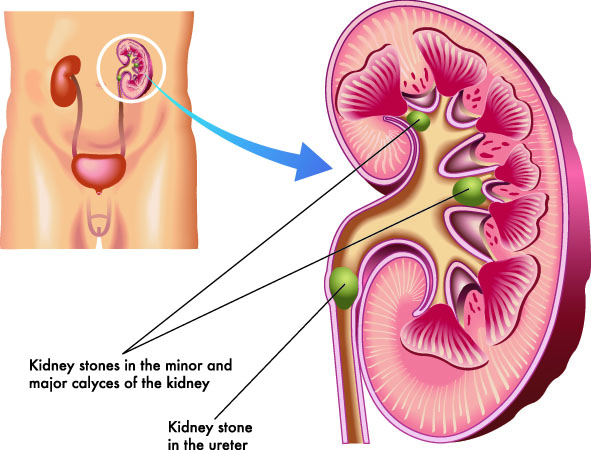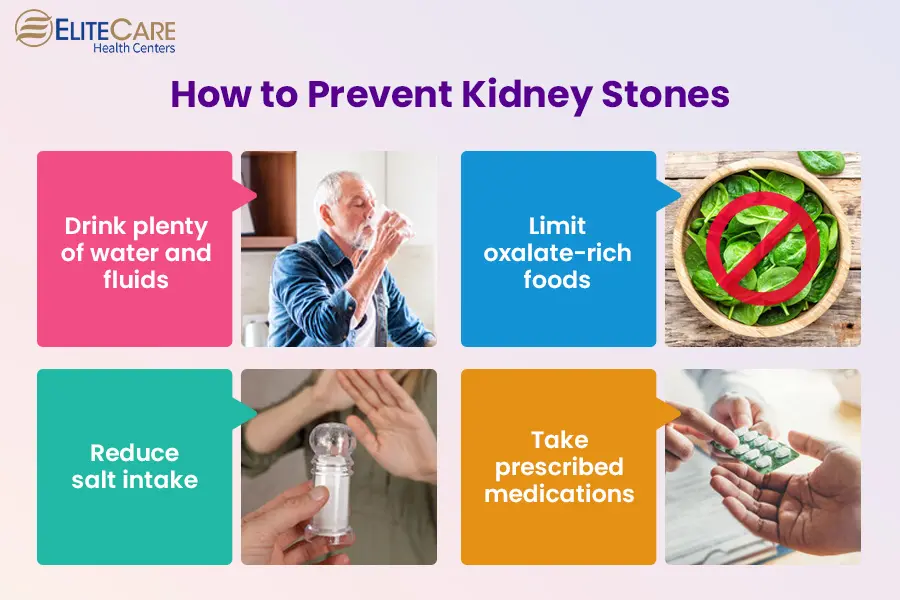Checking Out the Effects and Causes of Kidney Stones in Comparison to Urinary System Tract Infections: An In-depth Guide
The exploration of kidney stones and urinary tract infections (UTIs) reveals a complicated interaction of symptoms and underlying causes that require mindful examination. What are the essential differences in their signs, and just how might these inform therapy strategies?
Summary of Kidney Stones
Kidney stones, also called renal calculi, type when specific compounds in the urine crystallize and aggregate, resulting in the advancement of hard deposits within the kidneys. These stones can differ in dimension, varying from a grain of sand to a golf sphere, and can be made up of different materials, the most common being calcium oxalate, uric acid, struvite, and cystine. The development of kidney rocks is affected by a number of elements, including dietary habits, liquid consumption, and genetic predisposition.
Symptoms of kidney rocks might consist of severe pain in the back or side, blood in the pee, queasiness, and regular urination, particularly as the rock relocates through the urinary system. Diagnosis usually involves imaging studies such as ultrasound or CT scans, along with urinalysis to determine the stone's make-up.
Therapy choices differ based upon the size and type of rock, in addition to the severity of signs and symptoms (Kidney Stones vs UTI). Little stones might pass naturally with increased liquid intake, while bigger stones might need clinical treatments such as lithotripsy or surgical elimination. Understanding the pathophysiology and threat aspects related to kidney rocks is vital for effective avoidance and management
Introduction of Urinary System Infections
Urinary system infections (UTIs) are common microbial infections that affect any kind of part of the urinary system, consisting of the kidneys, ureters, bladder, and urethra. They primarily take place when bacteria, usually from the intestinal system, enter the urinary system, causing inflammation and infection. UTIs are classified right into two major types: complex and straightforward. Uncomplicated UTIs normally occur in healthy people with normal urinary systems, while difficult UTIs may develop in people with underlying conditions, such as architectural problems or compromised immune systems.
The prevalence of UTIs is significantly higher in ladies than males, largely due to anatomical differences, such as a shorter urethra. Danger aspects consist of sex, particular contraceptive methods, urinary retention, and dehydration. The diagnosis of UTIs is typically verified with urine tests, which may expose the existence of germs, leukocyte, or red blood cells.

Signs And Symptoms of Kidney Stones
The pain connected with kidney stones can manifest in numerous means, usually leading people to seek medical focus. Among the most common symptoms is extreme discomfort, usually localized in the reduced back or side, which might radiate to the abdomen or groin. This discomfort, commonly called sharp or cramping, can occur instantly and might vary in intensity.
In addition, individuals may experience hematuria, or blood in the pee, which can range from tiny amounts to visible staining. This symptom might be gone along with by changes in urinary system practices, such as increased regularity or urgency, along with discomfort throughout peeing. Nausea and throwing up are also widespread, typically arising from the body's reaction to extreme pain.
In some instances, individuals might experience high temperature and chills, specifically if a secondary infection establishes as a result of the obstruction brought on by the rocks. In general, the mix of extreme pain, hematuria, modified urinary system patterns, and gastrointestinal signs and symptoms can supply significant insight right into the visibility of kidney stones, requiring punctual clinical assessment and treatment. Understanding these signs and symptoms is crucial for prompt diagnosis and efficient administration of the condition.
Signs And Symptoms of Urinary System System Infections
Infections within the urinary system system typically present a variety of distinctive signs that can considerably impact life. One of the most typical signs consist of a persistent impulse to pee, usually accompanied by a burning site web sensation during peeing, called dysuria. People might also experience boosted regularity of peeing, producing small amounts of urine each time.
Other significant signs and symptoms include foul-smelling or cloudy urine, which might show the visibility of microorganisms or pus. Sometimes, pee may show up pink or red due to the existence of blood, a condition called hematuria. Additionally, individuals may experience pelvic discomfort or stress, which can additionally exacerbate the sensation of necessity.
Systemic symptoms might additionally show up, such as high temperature, chills, and tiredness, especially if the infection has actually ascended to the kidneys. It is important to acknowledge these signs early, as without treatment urinary tract infections can result in more severe complications. Kidney Stones vs UTI. Prompt clinical focus is encouraged when these symptoms are observed, allowing for ideal analysis examination and treatment to minimize discomfort and stop further health and wellness concerns
Root Causes Of Each Condition
Often, kidney stones and urinary system system infections develop from unique yet often overlapping reasons that can impact individuals in a different way. Kidney rocks usually develop my review here because of metabolic elements, nutritional options, and genetic tendencies. Boosted levels of calcium, oxalate, or uric acid in check this site out the urine can cause stone development. Dehydration, insufficient liquid consumption, and high-sodium diet regimens can exacerbate these conditions, promoting condensation within the urinary tract.

Recognizing these unique causes is vital for prevention and treatment. Kidney Stones vs UTI. While lifestyle adjustments might alleviate the danger of kidney stones, appropriate health and punctual therapy of urinary tract infections are essential for lowering their reappearance and connected problems
Conclusion
In summary, kidney rocks and urinary tract infections existing unique symptoms and underlying causes. Kidney rocks are defined by severe discomfort and metabolic elements, while urinary system infections mainly involve microbial infections resulting in urinary necessity and discomfort. Although both conditions can lead to hematuria, their formation devices differ significantly. Recognizing these differences is critical for efficient diagnosis and therapy, ultimately enhancing patient end results for those affected by either problem.
The expedition of kidney stones and urinary system infections (UTIs) reveals a complicated interaction of symptoms and underlying reasons that necessitate careful assessment.Urinary system tract infections (UTIs) are usual microbial infections that impact any kind of component of the urinary system, including the kidneys, ureters, bladder, and urethra.Often, kidney rocks and urinary system tract infections occur from distinctive yet sometimes overlapping causes that can impact people differently.In summary, kidney stones and urinary system system infections existing distinct symptoms and underlying causes. Kidney stones are defined by extreme discomfort and metabolic factors, while urinary tract infections mainly include microbial infections leading to urinary system necessity and discomfort.